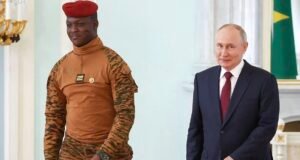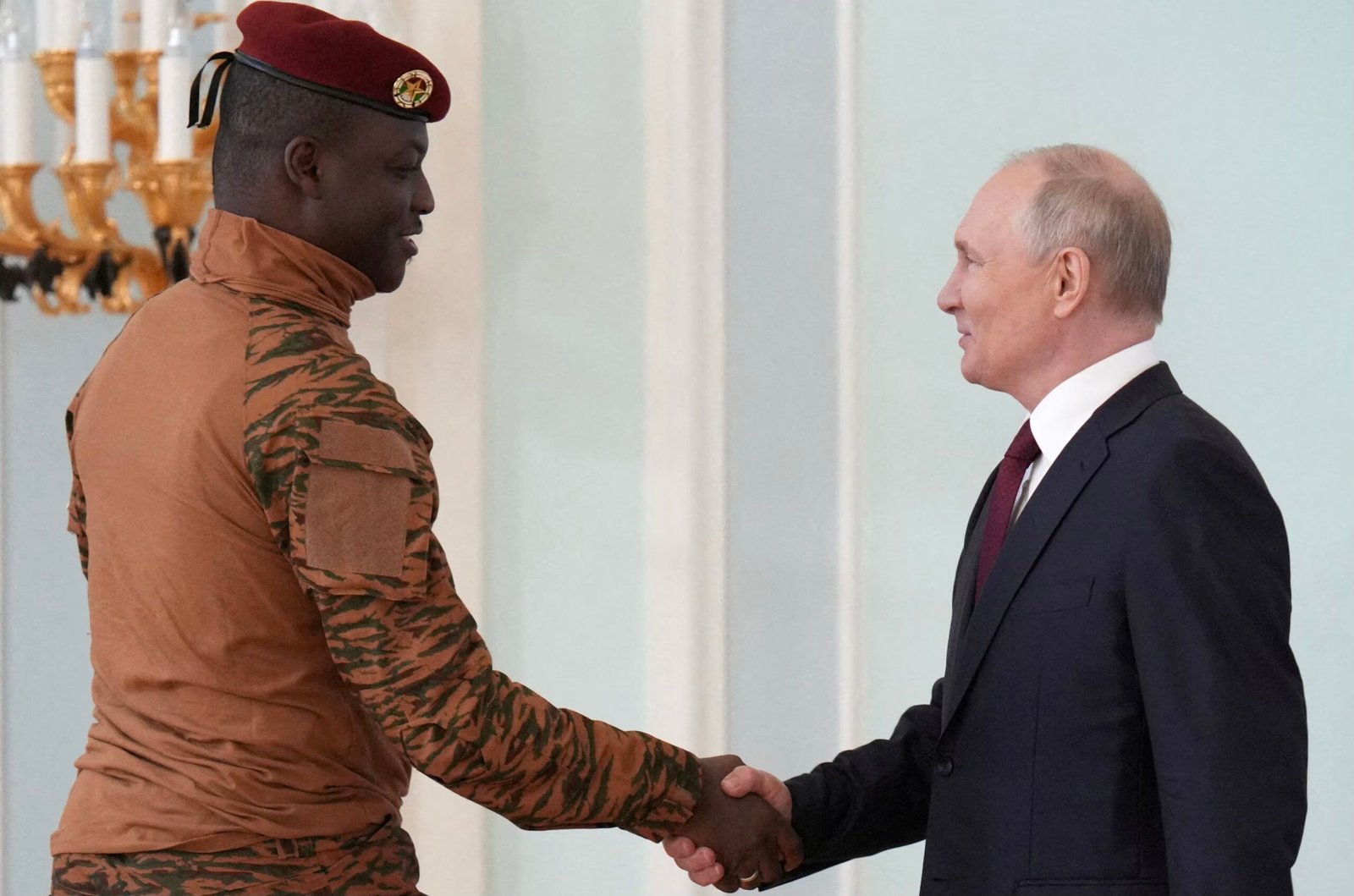 Prof. Kwesi Aning, Head of the Office for International Cooperation at the Kofi Annan International Peacekeeping Training Centre (KAIPTC) in Ghana, has sparked a heated debate with his assertion that Burkina Faso’s deepening relationship with Russia should not raise alarm bells. Aning’s comments come on the heels of a growing shift by Sahelian countries, including Burkina Faso, Mali, and Niger, away from traditional Western alliances and towards closer cooperation with Russia, particularly in security and economic matters.
Prof. Kwesi Aning, Head of the Office for International Cooperation at the Kofi Annan International Peacekeeping Training Centre (KAIPTC) in Ghana, has sparked a heated debate with his assertion that Burkina Faso’s deepening relationship with Russia should not raise alarm bells. Aning’s comments come on the heels of a growing shift by Sahelian countries, including Burkina Faso, Mali, and Niger, away from traditional Western alliances and towards closer cooperation with Russia, particularly in security and economic matters.
Western Double Standards Criticized
Speaking on The Point of View on Channel One TV with Bernard Avle, Prof. Aning defended Burkina Faso’s right to choose its allies, criticizing what he described as Western double standards. “All those criticizing Burkina Faso for dealing with Russia, Russia has invaded Ukraine, and all those countries talking are still doing business with Russia,” he said. Aning pointed out that despite sanctions imposed on Moscow, many Western companies continue to operate in Russia through indirect means, stating, “They talk about sanctions, but go to Moscow, the big cities, Western firms are finding ways and means of beating the sanctions to sell their industrial goods”.
Burkina Faso’s Sovereignty Asserted
Prof. Aning stressed that decisions on international partnerships rest solely with Burkina Faso’s leadership, asserting, “I think it’s up to the leadership of Burkina Faso to determine who are their best friends. And I can assure you, it’s not just the external partners. I’m not worried about all these noises coming from people”. This stance underscores Burkina Faso’s commitment to sovereignty and self-determination in its international relations.
Pan-Africanism and Self-Determination
Aning also drew parallels between Burkina Faso’s President, Ibrahim Traoré, and Ghana’s first President, Dr. Kwame Nkrumah, noting that the current generation of Sahel leadership is reviving long-held aspirations for African self-determination. “Traoré suddenly encapsulates all these epochs driving together, Burkina Faso, Mali, and Niger to raise critical questions and to bring a different and new understanding to what development and security means,” he noted.
Western Failure to Curb Extremism
The security analyst criticized Western countries for their failure to curb violent extremism in the region despite decades of involvement. “All these Western countries who are making noise about terrorism and extremism, they have been in these three countries for decades, they couldn’t bring the issues under control. Overnight, when these guys took over, the terrorists have become much more powerful, with better equipment, more mobile, with great intelligence access, and where is it coming from?” Aning questioned.
Regional Implications
Aning’s comments have significant implications for the region, highlighting the complexities of international relations and the need for African countries to determine their own paths to development and security. As the debate continues to unfold, one thing is clear: Burkina Faso’s relationship with Russia is a sovereign decision that should be respected.
Source: Africa Publicity








